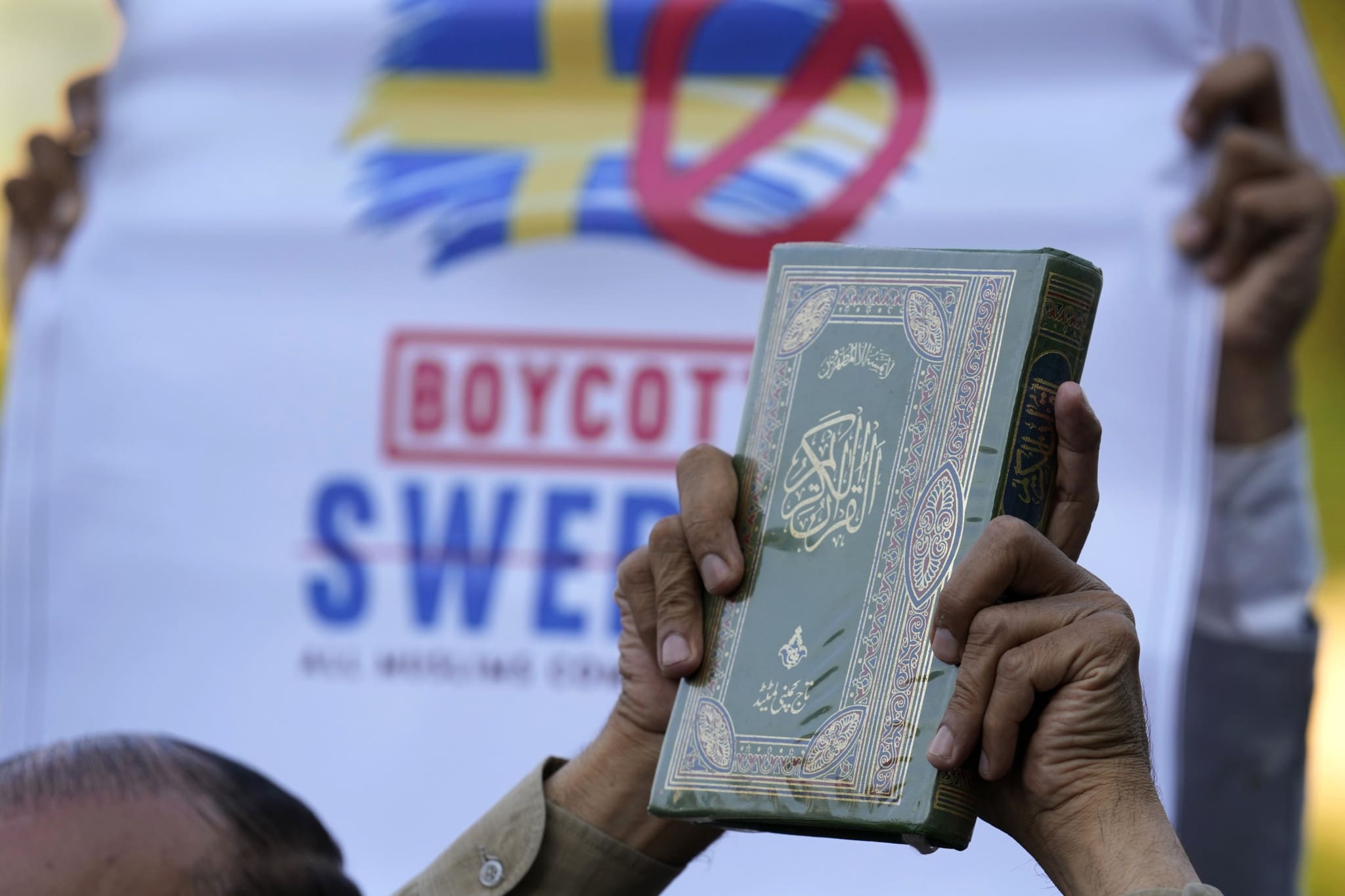Several Islamic nations have recalled their ambassadors in Stockholm, and Pakistan’s Prime Minister Shehbaz Sharif has called for nationwide demonstrations on Friday against recent Quran-burning protests in Sweden.
The Islamic world expressed widespread condemnation last week after Swedish authorities granted a protest permit to an Iraqi-born refugee who proceeded to burn the Muslim holy book outside a mosque in Stockholm to mark the first day of Eid al-Adha, the largest of the two main holidays celebrated in Islam.
Despite the permit, 37-year-old Salwan Momika was subsequently arrested by Swedish police and charged with agitation against an ethnic or national group, and the Iraqi foreign ministry has called on Stockholm to extradite the man so he can face trial in Baghdad.
The incident has led to several Arab nations including Kuwait, Morocco, Iraq and the United Arab Emirates, in addition to Iran, either recalling their ambassadors or refusing to send new diplomats to Sweden.
The Swedish embassy in Iraq was stormed by protesters the day after the demonstration as Muslims expressed their anger at the desecration of their holy book.
Pakistan’s Prime Minister Shehbaz Sharif called for Friday to be a day to “uphold the Quran’s sanctity” and called on his fellow citizens to engage in nationwide protests to “unitedly give a message to the miscreants.”
“Misguided minds are following a nefarious agenda by spreading the negative trend of Islamophobia,” he wrote in a statement cited by the AFP, warning that “violent minds targeting religion, venerated personalities, beliefs and ideas” were a threat to world peace.
Perhaps most importantly for Stockholm, the stunt threatens to reignite an ongoing feud with Turkey, which has reacted angrily in recent months to similar protests outside its embassy in the Swedish capital, leading President Recep Tayyip Erdoğan to delay his country’s ratification of Sweden’s NATO membership bid.
[pp id=63348]
Turkey’s Foreign Minister Hakan Fidan warned on Tuesday that “when it comes to Sweden’s membership in NATO, whether it will become a burden or a benefit has become more open to debate.
“The fact that the Swedish security system is incapable of preventing provocations and is presenting an image of a country that brings problems to NATO — instead of more power — is making us think in terms of strategic and security aspects,” he added.
Swedish Prime Minister Ulf Kristersson has called for calm and criticized Quran-burning demonstrations.
“I think that just because some things are legal, they are not necessarily appropriate,” Kristersson said on Friday.
Swedish courts ruled last month that protesters who wish to burn copies of the Islamic holy book should not be denied permits, as this contravenes the principle of free speech, a move that has given the Swedish government a headache.
Some protesters are legitimately protesting against the Islamic faith and their governments back home. Others are anti-NATO protesters who have openly stated their intention to further stoke tensions between Sweden and Turkey in an attempt to have Stockholm’s application to join the defense alliance vetoed by Ankara.
Swedish broadcaster SVT reported on Wednesday that three further applications have been submitted this week by individuals or groups who wish to burn religious scriptures in the near future, suggesting the diplomatic row won’t be going away anytime soon.






